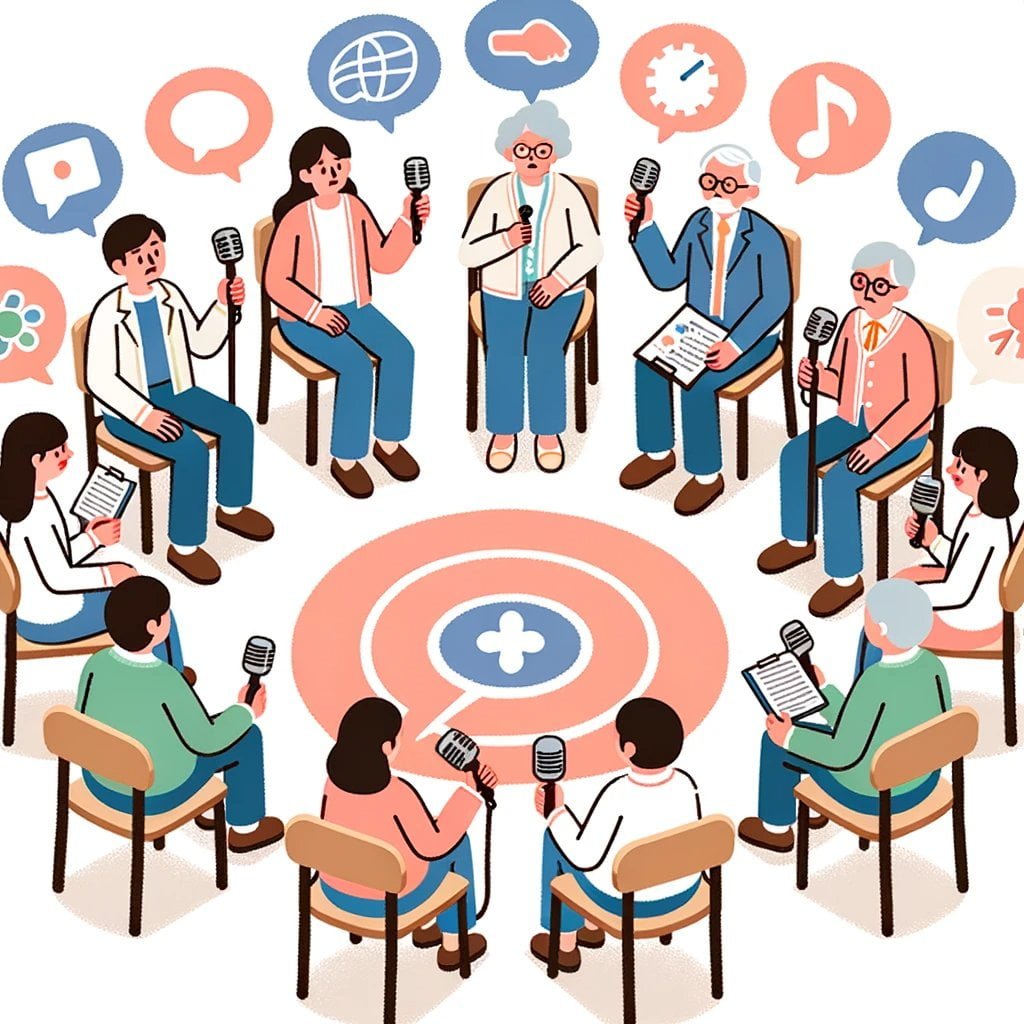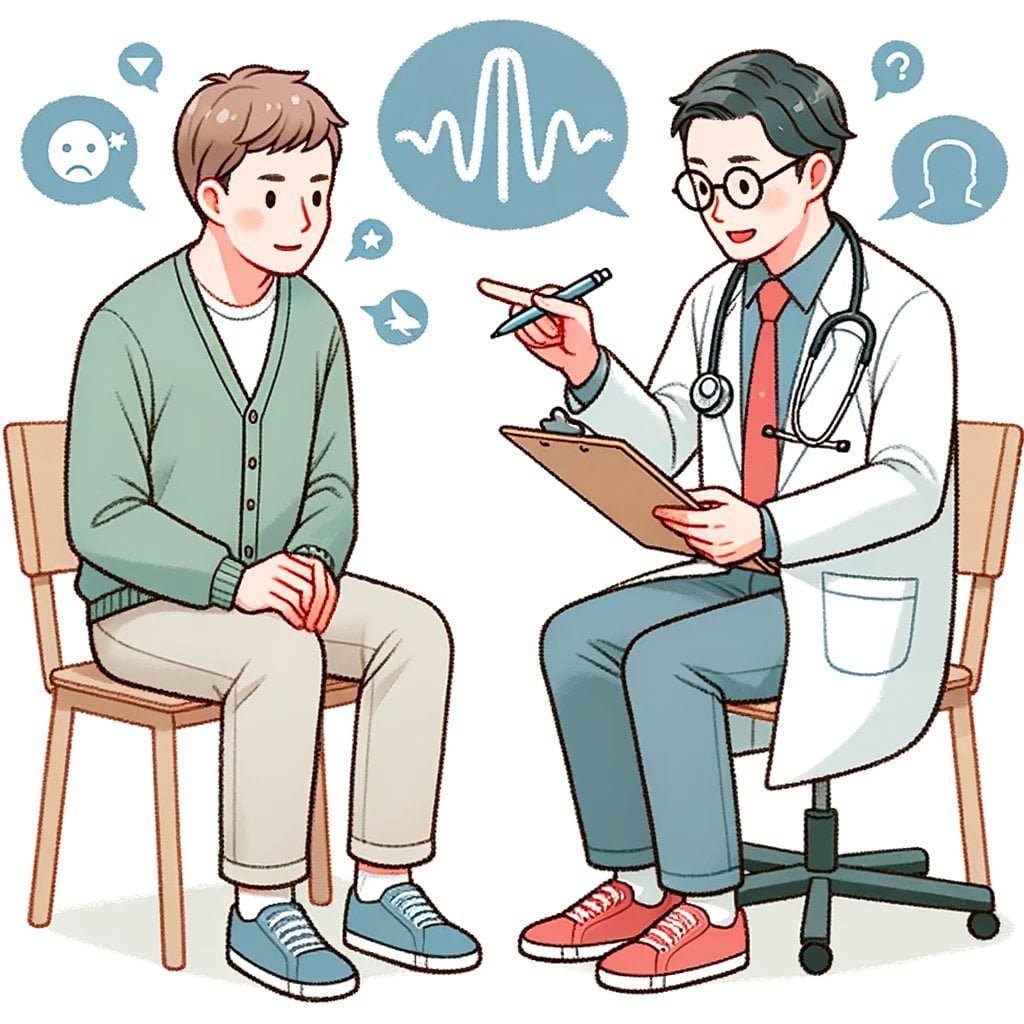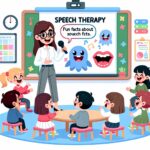After experiencing a stroke, are you or a loved one in search of effective methods to regain communication skills? You need not look any further. This article will explore the realm of speech therapy that is customized to the needs of patients who have suffered a stroke. With a demonstrated history of assisting stroke survivors in communicating effectively, I, in my capacity as a speech and language therapist with extensive experience, shall impart insightful advice and implementable techniques to help them regain confidence in their capacity to articulate themselves. Embark with me on an exploration of the transformative potential of speech and the myriad opportunities it presents to stroke survivors.
Speech Therapy for Stroke Patients
Speech therapy is an essential element of stroke rehabilitation due to its primary objective of facilitating the restoration of individuals’ capacity for effective communication. Disruptions in cognition, swallowing, and pronunciation are common among patients who have suffered a stroke. Speech therapy serves as a valuable intervention for stroke survivors, offering specific exercises and techniques that aid in surmounting these obstacles.
Stroke patients must collaborate with a licensed speech therapist, as they possess the knowledge and skills necessary to identify the exercises that are most suitable for each patient. They comprehend the intricacies of communication and the particular requirements that emerge as a result of harm caused by a stroke. Stroke victims who receive their assistance can regain confidence in their ability to communicate and enhance their communication.
However, suppose that a substantial injury to the language center of the brain due to a stroke renders individuals incapable of speaking. Does recovery remain feasible? Indeed, the answer is affirmative. Despite the time and effort required, speech therapy can still be of assistance during the recovery phase. Stroke patients may develop new modes of self-expression through the utilization of augmentative and alternative communication (AAC) techniques, among other alternatives.
Physiotherapy exercises may consist of cognitive and speech components, contingent upon the specific requirements of the individual. These exercises may consist of strengthening the speech musculature, honing pronunciation, enhancing comprehension, and improving language-related cognitive abilities. Speak therapists customize their methodology to suit the unique obstacles and objectives of every client, guaranteeing that the exercises performed are efficacious and in accordance with the individual’s capacities.
Rehabilitation from a stroke consists of a variety of programs and therapies designed to assist patients in relearning lost skills and abilities. Speech therapy is an essential component of this interdisciplinary strategy. Early initiation of stroke rehabilitation is crucial, as empirical evidence indicates that earlier intervention yields more favorable results. Continuity over the rehabilitation period is contingent upon the complications and severity of the stroke.
Rehabilitation for stroke patients may commence in a hospital environment, transition to outpatient settings, or even be conducted remotely from the patient’s residence as the condition advances. A stroke rehabilitation team typically comprises professionals from various fields of expertise, one of which is speech-language pathologists. The integration of their specialized knowledge and cooperation with fellow practitioners enhances the overall scope and efficacy of the rehabilitation program.
It is critical to emphasize that the results of stroke rehabilitation differ among individuals. Predicting the extent of rehabilitation can be difficult due to the fact that the road to recovery is individual. But substantial progress can be achieved through perseverance and a readiness to participate in rehabilitation exercises. Stroke patients can regain their communication abilities and improve their quality of life through a protracted process that requires proper assistance and diligence.
In essence, speech therapy is of critical importance in facilitating the restoration of communication abilities among stroke patients. Its emphasis on resolving difficulties associated with cognition, communication, and digestion renders it an indispensable component of stroke rehabilitation. Stroke survivors can rebuild confidence in their capacity for effective communication, enhance cognitive functioning, and improve speech by engaging in targeted exercises supervised by a licensed speech therapist. Bear in mind that recuperating from a stroke necessitates commitment and a readiness to engage in rehabilitation exercises; nevertheless, remarkable progress is possible.
“Speech therapy is the key to unlocking effective communication for stroke patients.”
Interesting Facts About Speech: Did you know that speech is not only a vital form of communication, but it also serves as a powerful tool for influencing and expressing ourselves? Discover some fascinating facts about speech and its impact on our lives. Click here to explore these intriguing insights: Interesting Facts About Speech.
FAQ
Initial Question
Why is speech ttherapy,essential for patients who have suffered a stroke?
Initial Response
Speech therapy is an individualized therapeutic modality that is specifically designed to assist stroke survivors in enhancing their cognitive capacities, digestive capabilities, and communication proficiencies. Speech therapy can assist patients who have suffered a stroke in these domains, where they frequently struggle to regain function and enhance their quality of life.
Second Question
How can speech therapy assist patients who have suffered a stroke and are experiencing challenges with communication?
Answer Two
Stroke patients who are undergoing speech therapy may engage in an array of exercises and techniques that are customized to their particular requirements. These exercises may consist of both mental and physical components, including problem-solving and memory-based tasks, as well as exercises designed to fortify the muscles responsible for speech production. Speech therapy can assist stroke patients in enhancing their overall communication capabilities, including speech and language skills, through the targeted improvement of various communication aspects.
Third Question
When is speech therapy typically initiated following a stroke?
Three Answers
It is advisable to initiate speech therapy promptly following a stroke in order to optimize recovery outcomes. Initiating stroke rehabilitation as soon as possible, which includes speech therapy, enables the brain to more efficiently begin restructuring and relearning the impaired skills. Nevertheless, stroke patients can still benefit from speech therapy exercises and improve their communication skills, even if treatment is not initiated until a later time.
Fourth Question
Speech therapy is an integral component of stroke rehabilitation.
Response Four
Rehabilitation from a stroke frequently necessitates the participation of numerous specialists, including speech-language pathologists, in a multidisciplinary effort. Speech therapy may involve the participation of stroke patients in activities designed to enhance their digestive functions, word-finding abilities, and comprehension skills. The precise exercises utilized will be contingent upon the requirements and objectives of the individual as determined by the speech therapist.
Cinquisite 5
What is the average duration of stroke rehabilitation, which encompasses speech therapy as well?
5th Answer
Rehabilitation following a stroke may last for an extended period of time, contingent upon the complications and severity of the complication. Certain people may require therapy for a few weeks or months, whereas others may require treatment for an extended period of time. The objective of stroke rehabilitation is to facilitate the restoration of impaired functional capacities and enhance overall well-being. The length of therapy will be tailored to the individual’s progress and particular requirements.
- Unveiling the Enigma: Mansoureh Khojasteh Bagherzadeh’s Public Appearances & Private Life in Iran - July 18, 2025
- Unveiling the Mystery: Mansoureh Khojasteh Bagherzadeh’s Husband: A Rare Glimpse into a Private Life - July 18, 2025
- Unveiling Masoud Khamenei’s Mother: Power, Influence, and Iran’s Future - July 18, 2025



















